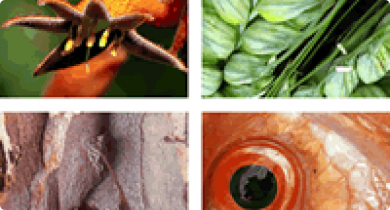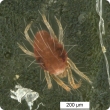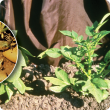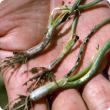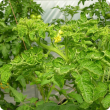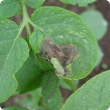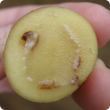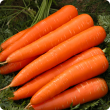Biosecurity & quarantine
The Department of Agriculture and Food, Western Australia (DAFWA) works with primary industries to safeguard our agricultural resources from biological threats and to maintain our export opportunities.
The State’s reputation is underpinned by a comprehensive biosecurity and quarantine system, developed and operated by DAFWA.
DAFWA is involved with:
- creation of surveillance and diagnostic programs
- animal and plant risk assessments
- importing and exporting requirements
- creating mechanisms to respond to incursions
- livestock movement and identification
- development and maintenance of biosecurity and quarantine legislation.
To find out more about what we do to protect agricultural production and export opportunities within the State please search our website.
Filter by search
Filter by topic
- Horticulture (19) Apply Horticulture filter
- Crops (19) Apply Crops filter
- Biosecurity (19) Apply Biosecurity filter
- (-) Remove Pests, weeds & diseases filter Pests, weeds & diseases
- (-) Remove Vegetables filter Vegetables
- Plant biosecurity (18) Apply Plant biosecurity filter
- Diseases (15) Apply Diseases filter
- Potatoes (11) Apply Potatoes filter
- Tomatoes (7) Apply Tomatoes filter
- Pests (6) Apply Pests filter
- Crop diseases (4) Apply Crop diseases filter
- Fungi (4) Apply Fungi filter
- Onions (3) Apply Onions filter
- Viruses & virus-like (3) Apply Viruses & virus-like filter
- Bacteria (3) Apply Bacteria filter
- Pest insects (2) Apply Pest insects filter
- Grapes & wine (2) Apply Grapes & wine filter
- Nursery & cutflowers (2) Apply Nursery & cutflowers filter
- Garlic (2) Apply Garlic filter
- Fruit (2) Apply Fruit filter
- Capsicums and chillies (2) Apply Capsicums and chillies filter
- Mites & spiders (1) Apply Mites & spiders filter
- Sweet potato (1) Apply Sweet potato filter
- Table grapes (1) Apply Table grapes filter
- Livestock species (1) Apply Livestock species filter
- Beans (1) Apply Beans filter
- Bees (1) Apply Bees filter
- Citrus (1) Apply Citrus filter
- Leeks (1) Apply Leeks filter
- Livestock & animals (1) Apply Livestock & animals filter

